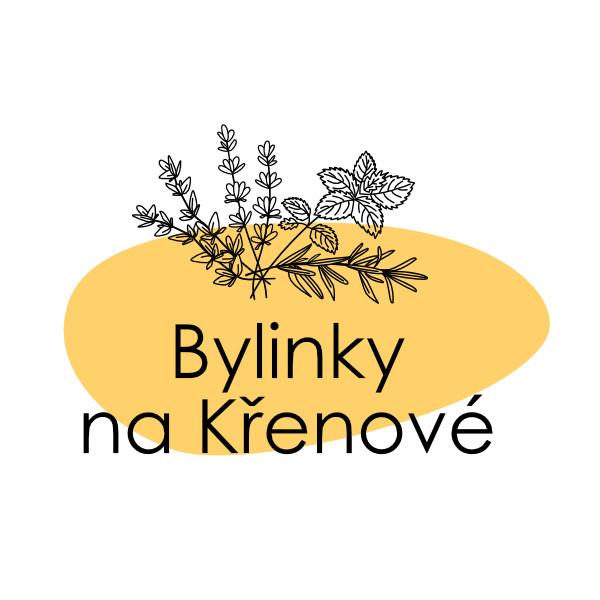Druhý krok
Are you wondering why our Montessori kindergarten is called Druhý krok (The Second Step)? It is because it follows the Montessori nursery První krok and its four classes – Meduňková, Rozmarýnová, Levandulová, and Tymiánová. Most of the children currently attending the kindergarten are graduates of one of these classes, but if we have available space, we also welcome children with no prior experience in the nursery.
Under the banner of the Montessori kindergarten Druhý krok, one class is currently open – the Children’s Group Bylinky na Křenové. We believe that in the future, we will continue to expand our activities and meet the growing interest of parents in our educational and childcare approach.

Educational Program
Our educational practices and standards are based on the principles of Montessori pedagogy, emphasizing respect for upbringing. We guide children towards a relationship with nature, environmental care, and incorporate Czech traditions throughout the program. The program is structured into monthly plans divided into individual themes for each week. A project related to the theme runs throughout the month, integral to the daily life of the kindergarten, engaging children in active and meaningful learning.
In the afternoons, we offer children sports, dance, theater, and arts and crafts clubs, allowing them to develop their talents and interests.
We regularly organize trips and excursions in the surroundings, visit museums, and attend cultural events. We believe that real learning occurs not only in the classroom but also in the real world.
Parent-Friendly Approach
Understanding the needs of parents, we are open daily from 7:30 AM to 5:00 PM. During the summer holidays, we take only two weeks off, ensuring parents do not have to arrange alternative programs if they do not have enough vacation time. Throughout the year, we regularly organize joint events for parents and children because strong relationships between educators, parents, and children are essential to us.
Prepared Environment in the Classroom
Our kindergarten offers numerous opportunities for children to develop their skills and interests. In the classroom, they have access to quality Montessori materials tailored to their sensitive periods, promoting independence and creativity. Additionally, we have practical corners where children can engage in crafts, food preparation, reading books, caring for pets, or arranging and growing plants.
Garden
The Bylinky na Křenové class is within walking distance of our private garden. We care for herbs, fruits, and flowers, allowing us to observe nature up close throughout the year. Children happily participate in garden care and can taste fresh vegetables in summer or brew excellent herbal tea in the fall. The garden is fenced, and there’s a shelter to protect us from adverse weather. We aim to show children and the community that even in the city, one can live in harmony with nature, ecologically and with respect for the environment. We want children to have the opportunity to appreciate the beauty of nature and learn to treat it considerately.

The difference between our classrooms lies in their spaces and locations. The philosophy, approach, and Montessori materials are at the same level in all classes. All our classrooms are inspired by the Montessori philosophy.
We respect and nurture the innate personality of the child. Children are not forced into anything; on the contrary, they decide when and with which tools they will work. We support their interests and decision-making abilities. We teach children independence, order, concentration, and also develop coordination. Everything has its boundaries, allowing children a safe development of their personality.
With Montessori tools and methods, children can explore the world with all their senses. Thanks to a prepared environment, the child can discover the world within their abilities and possibilities. All at their own pace, they learn very well, and the exploration of new sensations and things is highly enjoyable for them.
We strive for the child to feel confident in the collective. We dedicate shared time to various activities, such as taking care of our herbs, tending to a snail, exploring tactile mats, reciting rhymes, or playing musical instruments and singing songs, including those in the English language.

Our goal is to do everything possible to enable the child to independently and continuously acquire new skills and knowledge. This requires a prepared environment and a guide who supports the child in their development. In short, it is necessary to give the child the space and time they need at that moment and assist only when they desire it.
It is a phase of natural development in which a child is capable of quickly and easily learning specific skills but can also be very sensitive. During this time, children are motivated to certain activities/tools that attract them the most. If this phase is not utilized, the child will learn it later, but with more effort and a longer time.
It is beneficial to emphasize the involvement of the senses (the more, the better) in activities. Working with hands is the foundation for children to comprehend phenomena, develop thinking, and language – from grasping to understanding.
The child independently chooses which tool to work with, when to work with it, and where to work with it. In making these decisions, the child also bears responsibility for their choices, and others respect this.
It is the child’s ability to intensely and persistently focus on work. It has three phases – the first is the child seeking something that would capture their interest. The second is concentration – the longest phase, where the child has found what interests them and is working. The final phase is saturation – the child completes the work, cleans up, and feels content. The polarization of attention is achieved through practical life activities (developing fine motor skills, guiding the child to maintain focus and self-control).
Children work in age-mixed groups (age categories, for example: 3–6, 6–9, 9–12 years). These groups encourage collaboration, decision-making, patience, tolerance, mutual assistance, consideration, etc., among children. Simultaneously, they also learn from and inspire each other.
Montessori education is the oldest continuously used educational system. The spiritual mother of this method was the Italian physician Maria Montessori, who began developing her method over 100 years ago. Since then, Montessori education can boast a number of significant and successful individuals, including Jeff Bezos (founder of Amazon.com), Jacqueline Kennedy Onassis (former First Lady of the USA), Gabriel Garcia Marquez (Nobel Prize-winning author), Princes William and Harry (sons of Princess Diana), T. Berry Brazelton (world-renowned pediatrician and author of children’s books), Bill and Hillary Clinton.
Maria Montessori developed an extensive set of educational materials for her method, the simplicity and brilliance of which still amaze many educators and parents. Most of these materials are made of wood or other natural materials and surpass many educational toys of today in their purpose.
When reporters asked the founders of Google – Larry Page, Sergey Brin – what they attributed their amazing abilities to, which led to the founding and successful development of the world’s most used search engine, they expected praise for the prestigious Stanford University, where Larry and Sergey met. To their greater surprise, the answer was that the foundations of their internal motivation and interest in knowledge and positive change were laid in a Montessori preschool, where both entrepreneurs began their educational journey.

Montessori pedagogy is based on utilizing the so-called sensitive periods in a child’s development, allowing the child to easily and naturally acquire specific skills and knowledge for which they have heightened sensitivity during these periods. Children seem to subconsciously know what to focus on and express interest in certain activities or knowledge. If provided with the space and suitable stimuli for development during these periods, children learn very quickly and eagerly. Missing the opportunity to teach children a particular skill during a sensitive period still provides them with a chance to learn it later, but it will require much more effort.
One frequently cited example of a sensitive period is the time when a child is naturally predisposed to language learning. This period begins at birth (some scientists believe it may even start earlier) and ends around the age of six. A child can easily learn their native language and other languages during this time. Learning additional languages at this early age is not only easy for the child but also highly beneficial for their further development. Modern neuroscience findings show that learning another language creates numerous connections in the brain, which overall strengthens the child’s intellectual capacity.
Another sensitive period that would be a shame to miss is the period of learning order. This period also begins at birth and peaks between 18 months and 2.5 years of age, gradually diminishing until the age of 5. During this time, children have a desire for consistency and repetition. Children love routine activities that occur regularly, and deviations from the daily schedule disrupt them. Even the stubborn period of defiance, which emerges around the second year, is justified by exaggerated reactions of a toddler to deviations from the routine that adults often do not even register. During this period, children love order, especially when each item or toy has its designated place. If we organize the child’s environment at this age and let the child put away toys themselves, we won’t have to teach them this for many years to come.
The Montessori method helps children develop their senses and lays the foundation for healthy curiosity and interest in further learning. The child chooses what interests them and learns in-depth about those subjects. It is not uncommon for children in Montessori schools to learn things in mathematics, geometry, geography, and biology that are typically covered in the primary grades. It might also be surprising that the sensitive period for learning to write and read is around the age of four – if children are given the opportunity and suitable stimuli, they eagerly learn what most children with much less enthusiasm learn in school.
The goal of the Montessori method is to teach children respect for themselves, others, and their environment. In a Montessori environment, children learn to develop their individuality in the context of the world we live in. They become self-confident, capable of analyzing facts and responding to them (skills often mentioned by Larry and Sergey), and have the intellectual capacity to translate their thoughts into actions. The method’s founder believed that everything could be solved through peace and that education is essential for peace. Perhaps the two most important lessons that Montessori pedagogy imparts to children are that life is worth living and that the world can be changed.
Maria Montessori developed her method based on long-term observations of children, to which she had great talent. In her works, she states that she is not developing a method but merely describing a phenomenon or force that exists in every child, guiding them towards creativity and influencing their behavior. Her method stimulates this innate force in children and further nurtures it.
